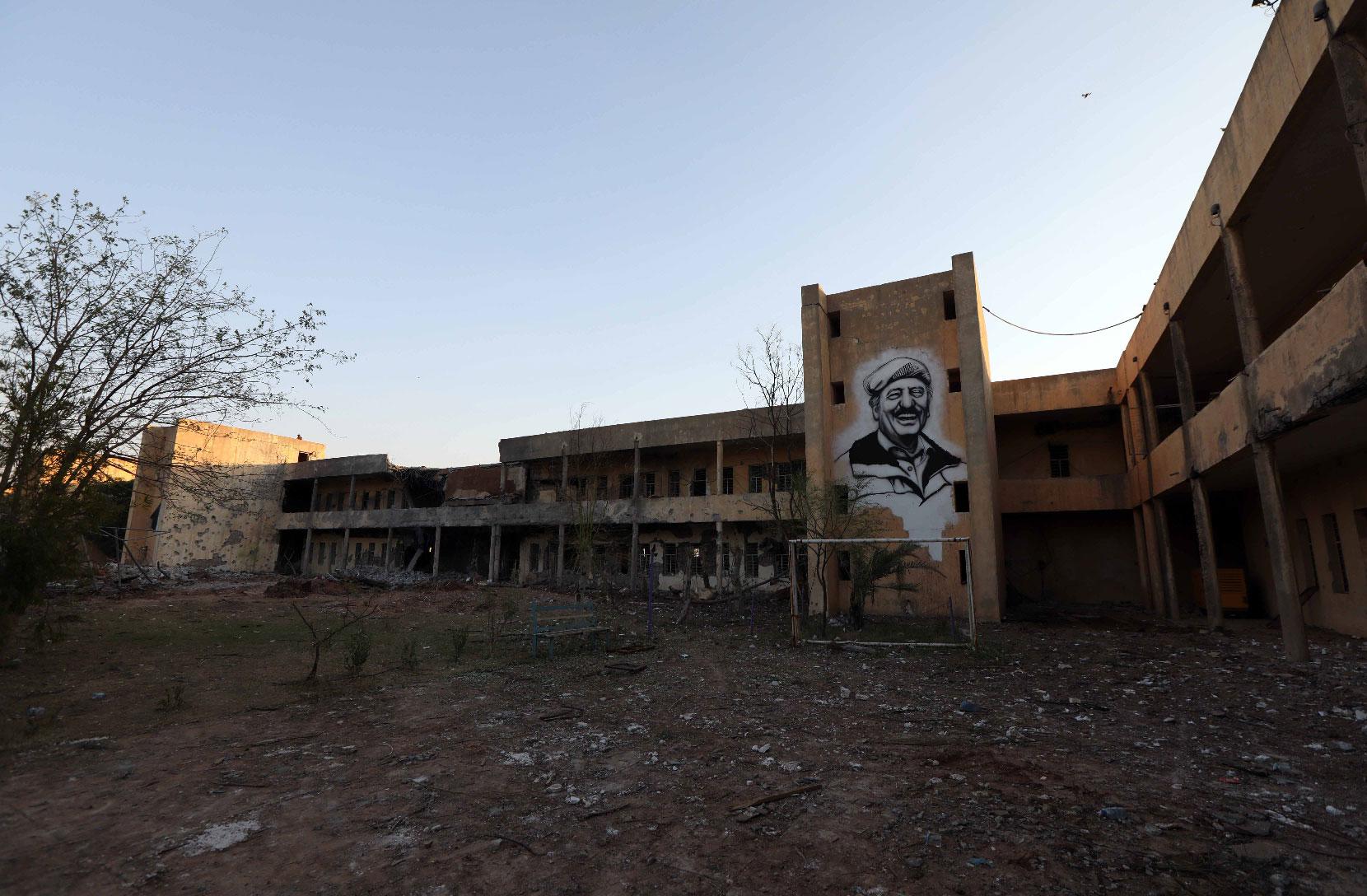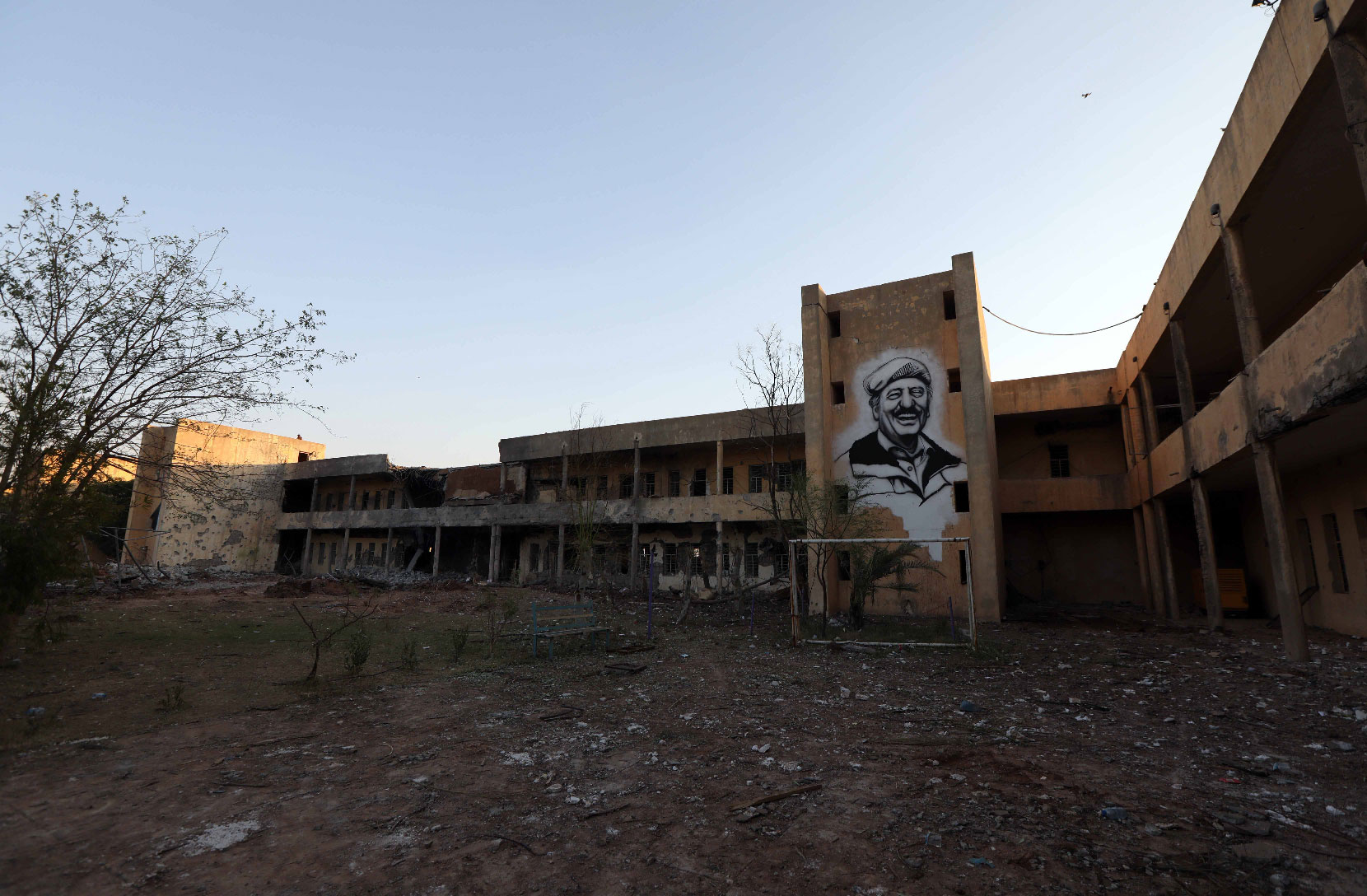Iran demands Iraq hand over Kurdish dissidents
TEHRAN -The head of Iran's armed forces demanded on Tuesday authorities in neighbouring Iraq hand over separatist Kurdish dissidents stationed there and close their bases, according to a report by the semi-official Fars news agency.
Major General Mohammad Baqeri was quoted three days after reports that Iran's Revolutionary Guards fired seven missiles at the base of an Iranian Kurdish armed opposition group in northern Iraq, killing at least 11 people.
It said the strikes were a retaliation for repeated cross-border incursions by the "terrorist" group.
"The government of Iraq and the Kurdistan authorities should not allow existence of such bases in their territories and should hand over these separatist terrorists to Iran," Baqeri said, according to Fars.
"If they cannot hand them over, then they should expel them ... It is Iran's right to defend itself."
Iranian missiles hit the headquarters of the Democratic Party of Iranian Kurdistan (PDKI), Iran's Revolutionary Guards said on Sunday in a statement.
The PDKI is an armed opposition group that fights for greater autonomy for Iran's Kurdish community. Shiite Muslim-dominated Iran has up to 10 million Kurdish citizens who are mostly Sunni. Iran accuses its regional rival Saudi Arabia of funding Kurdish armed groups.
Iranian-Kurdish parties have had camps and bases in Iraq's Kurdistan Region since the early 1980s. The PDKI is Iran's oldest Kurdish separatist group. It was banned after the Islamic revolution of 1979 and appears to have resumed operations in 2016 after a long truce.
Iraq's foreign ministry denounced Saturday's missile strike by Iran.
"Iraq protects the security of its neighbours and does not allow its territory to be used to threaten these countries," spokesman Ahmed Mahjoub said on Sunday.
The Kurdistan Regional Government in Iraq (KRG) says it is officially opposed to any Kurdish group using the Region’s territory to attack neighbouring Iran or Turkey.
"Provoked by some regional countries and America ... these separatist terrorists carried out some operations inside Iran ... such measures are unacceptable for Iran," Baqeri said.
Bagheri said Kurdish leaders in Iraq had given assurances in the past that it would rein in the KDPI and other anti-Iran militants.
"But since last year, provoked by America, they broke this pledge," he told ISNA.
"If such hazardous incidents continue, the incident that happened to their commanders will happen again," he added in reference to Saturday's strikes.
The PDKI denies receiving Saudi support and says Kurds have been forced to take up arms because they have no alternative to secure their political rights.
Riyadh in turn accuses Iran of stirring up trouble amongst the kingdom's own Shiite minority, a charge Iranian officials have denied.
Iran is involved in a proxy war with Sunni Saudi Arabia in the Middle East, where Tehran backs President Bashar al-Assad in Syria's civil war, Houthi forces in Yemen's conflict and Lebanon's Hezbollah.
Riyadh also backed US President Donald Trump's decision in May to pull the United States out from a 2015 international nuclear deal with Iran and to reimpose sanctions on Tehran.
Analysts have said that the Iranian attack was also likely intended as a warning to the Kurdish regional government not to throw their weight behind an anti-Iran candidate in ongoing parliamentary negotiations in Baghdad to form a government.
Iran believes the US government is working to influence KRG leaders as part of an ongoing campaign to pressure lawmakers out of choosing a pro-Iran candidate.
Baqeri on Tuesday also criticised the United States for allegedly provoking the Kurdish forces in Iraq to target the Islamic Republic.
"Over two decades ago, officials from Iraqi Kurdistan and the outlawed Kurdistan Democratic Party had “made a written commitment not to conduct operations in Iran, but they have been breaking that promise over the past year due to US provocations," Baqeri said.
The Trump administration in Washington has made no secret of its opposition to the regime in Tehran. Iranian-Kurdish parties have lobbied for their cause in the American capital.
US Vice President Mike Pence, in a phone call with KRG PM Nechirvan Barzani, “condemned Iran’s recent rocket attacks into the Kurdistan Region as an effort to threaten and destabilize its closest neighbor.”
The Kurdish parties reported a buildup of Iranian troops on the border with the Kurdistan Region, with some accounts saying that Iranian troops crossed the frontier with heavy weaponry.
Around 200 families have reportedly fled their homes in the border area as tensions simmer.
Kurds, a non-Arab ethnic group, have long agitated for their own state. They number between 25 and 35 million people who are spread across Turkey, Syria, Iraq and Iran.



